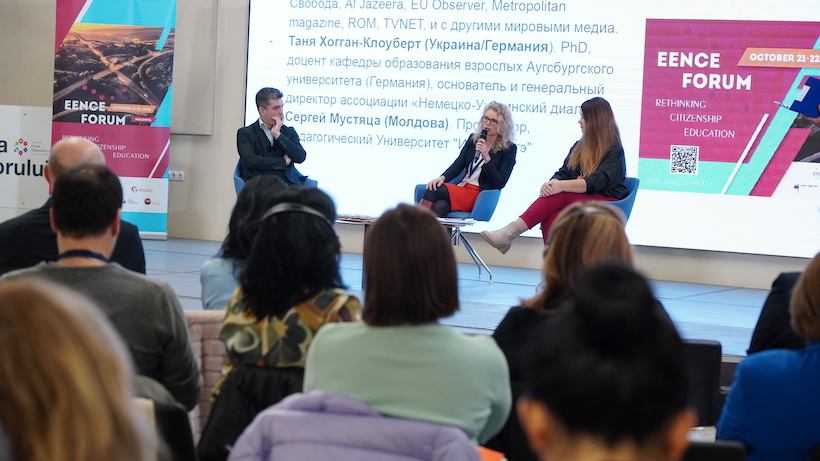Citizenship education in the EaP region: How to preserve the common (without losing our own) in the context of a growing geopolitical divide
This was the name of the talk show that opened the second day of the Citizenship Education Forum, held on October 21-22 in Moldova. Its presenters were journalists and media experts Vitaut Rudnik (Belarus) and Ludmila Barba (Moldova).
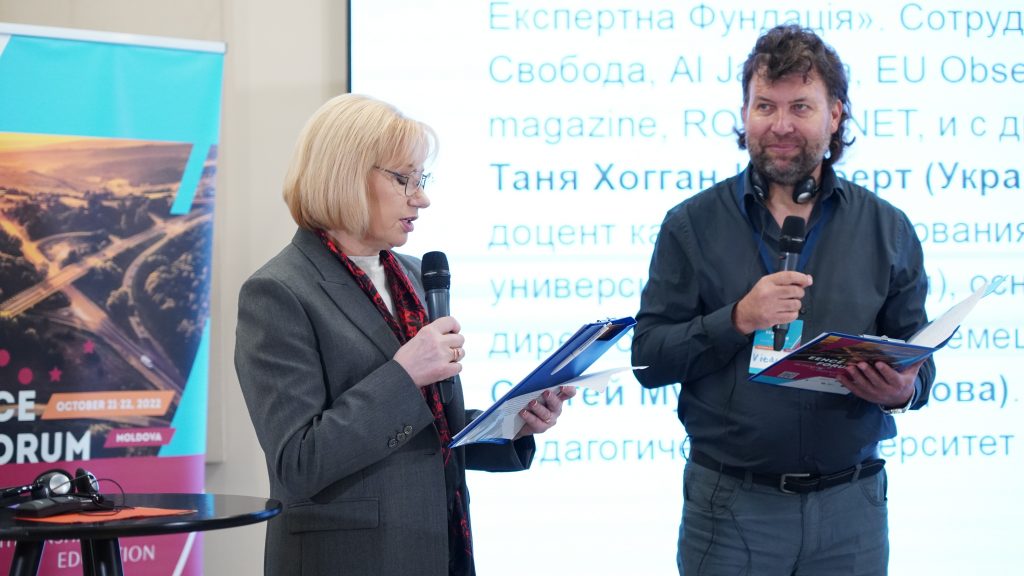
A partnership that CREATES, PROTECTS, STRENGTHENS — these are the words from the description of the priorities of the Eastern Partnership policy developed by the European Union.
But does the Eastern Partnership remain a region that unites? Ukraine, Georgia and Moldova have clearly declared their course towards integration with the European Union, official Minsk has supported Putin’s aggressive policy, battles between Azerbaijani and Armenian troops break out time after time. Is it possible in such a situation to consider this region as something whole now?
The participants of the talk show answered this question by “voting” with green and red cards. The majority raised green cards, noting that the Eastern Partnership is still a common platform within which it is possible to cooperate.
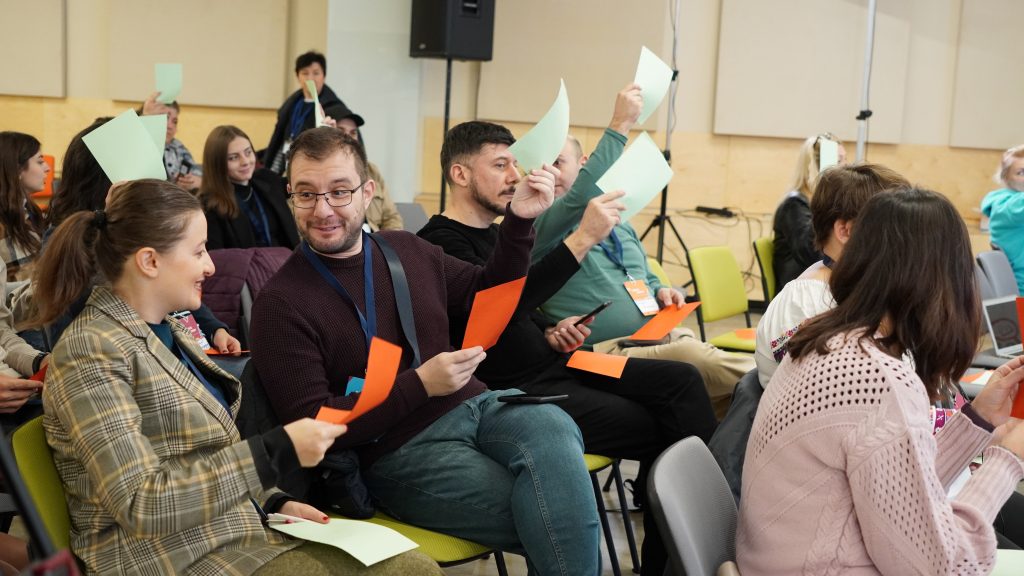
However, there were also opinions that the gap between the societies of different countries, provoked by Russian aggression and other conflicts in the region, is too large to think about any kind of cooperation.
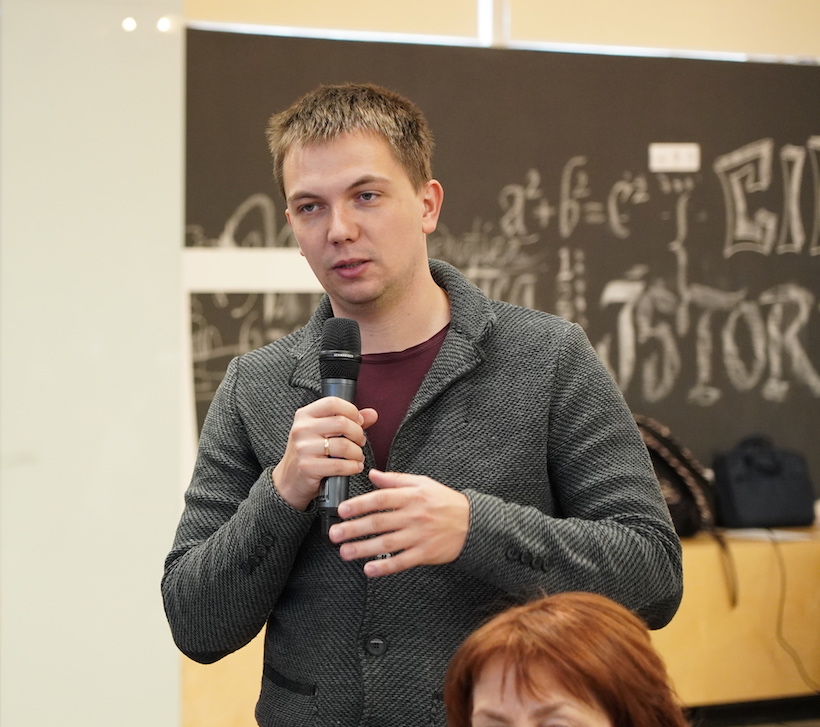
The experts invited to the talk show also shared their opinion on this issue:
Hanna Baraban (Belarus/Spain). An expert in the field of international relations, a political journalist. Master of the Barcelona Institute of International Studies in the Field of International Security, member of the GO “Ukrainian Expert Foundation”. Collaborated with Radio Liberty, Al Jazeera, EUobserver, Metropolitan magazine, ROM, TVNET, and other world media.
Tanja Hoggan-Kloubert (Ukraine/Germany). PhD, Associate Professor of the Department of Adult Education at the University of Augsburg (Germany), founder and CEO of the Association “German-Ukrainian Dialogue”.
Sergiu Musteata (Moldova). Professor, Ion Krange Pedagogical University.
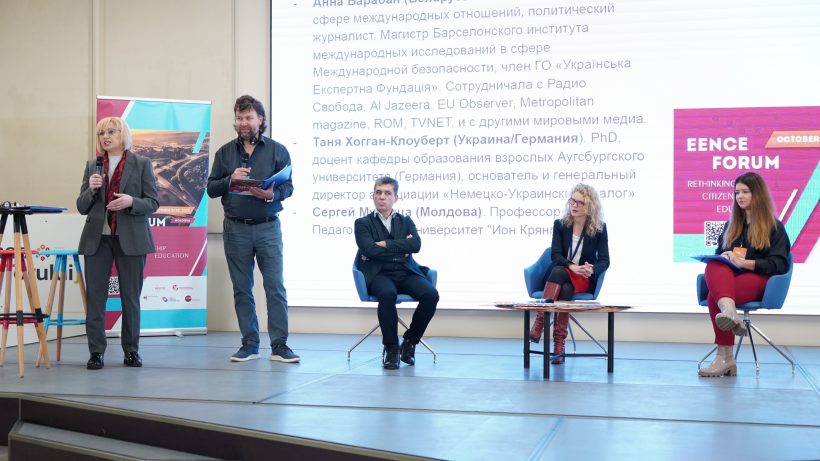
The experts agreed that despite the significant differences in the geopolitical priorities of different countries in the region, and the different interpretation of democracy in these countries, there is still space for cooperation and this opportunity must be used at least at the level of civil society.
Answering the question about possible transformations of the EU policy towards the Eastern Partnership region, Hanna Baraban noted that now it is very important to share the difference between states and societies, and the European Union should become a good moderator of partnership in the region, taking into account the cultural specifics of each country.
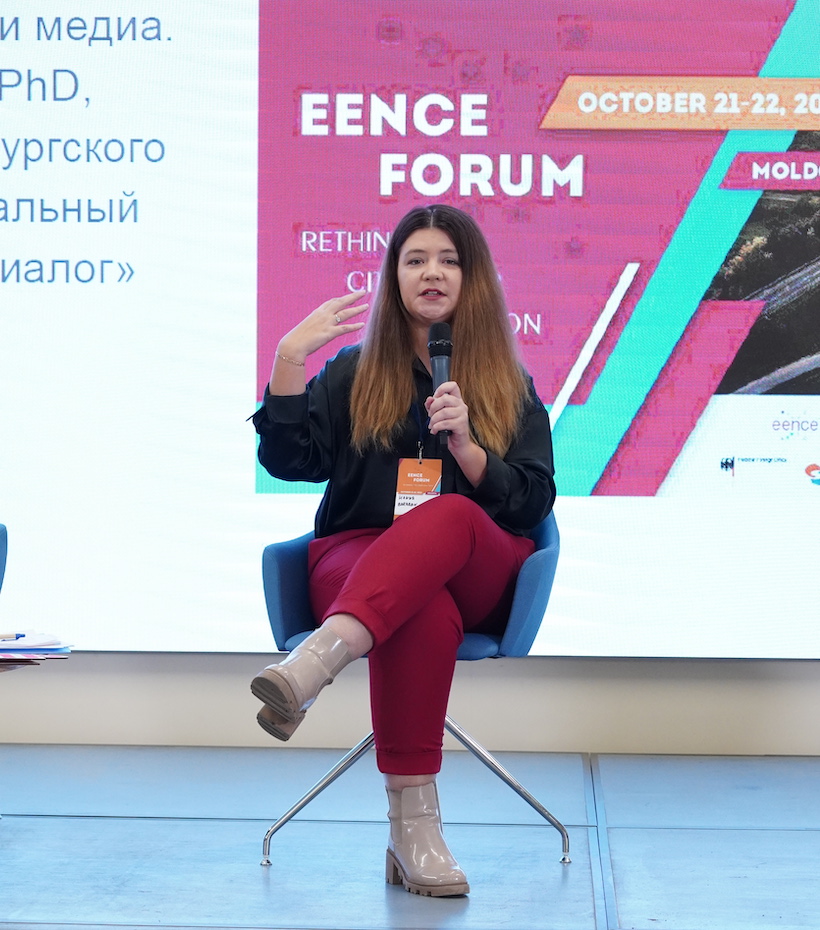
Tanja Hoggan-Kloubert proposed three priorities for the work of civil instructors in the Eastern Partnership countries:
— Critical thinking.
— Emancipation.
— Cooperation.
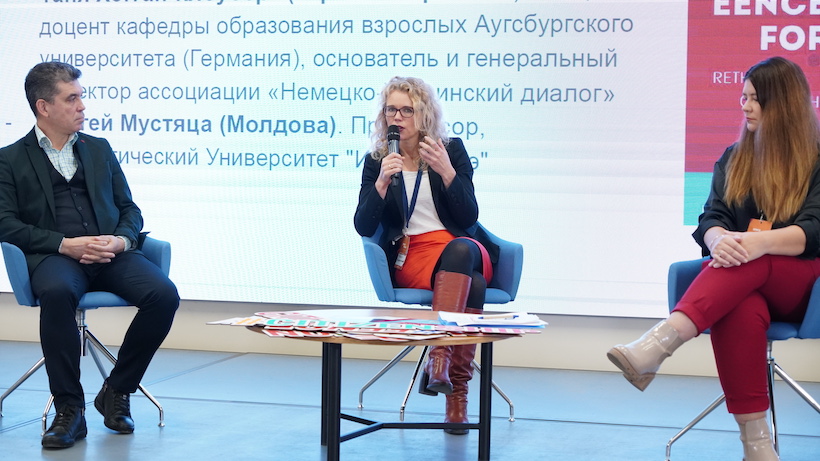
Professor Sergiu Musteata paid special attention to the role of the education system for the promotion of democracy.
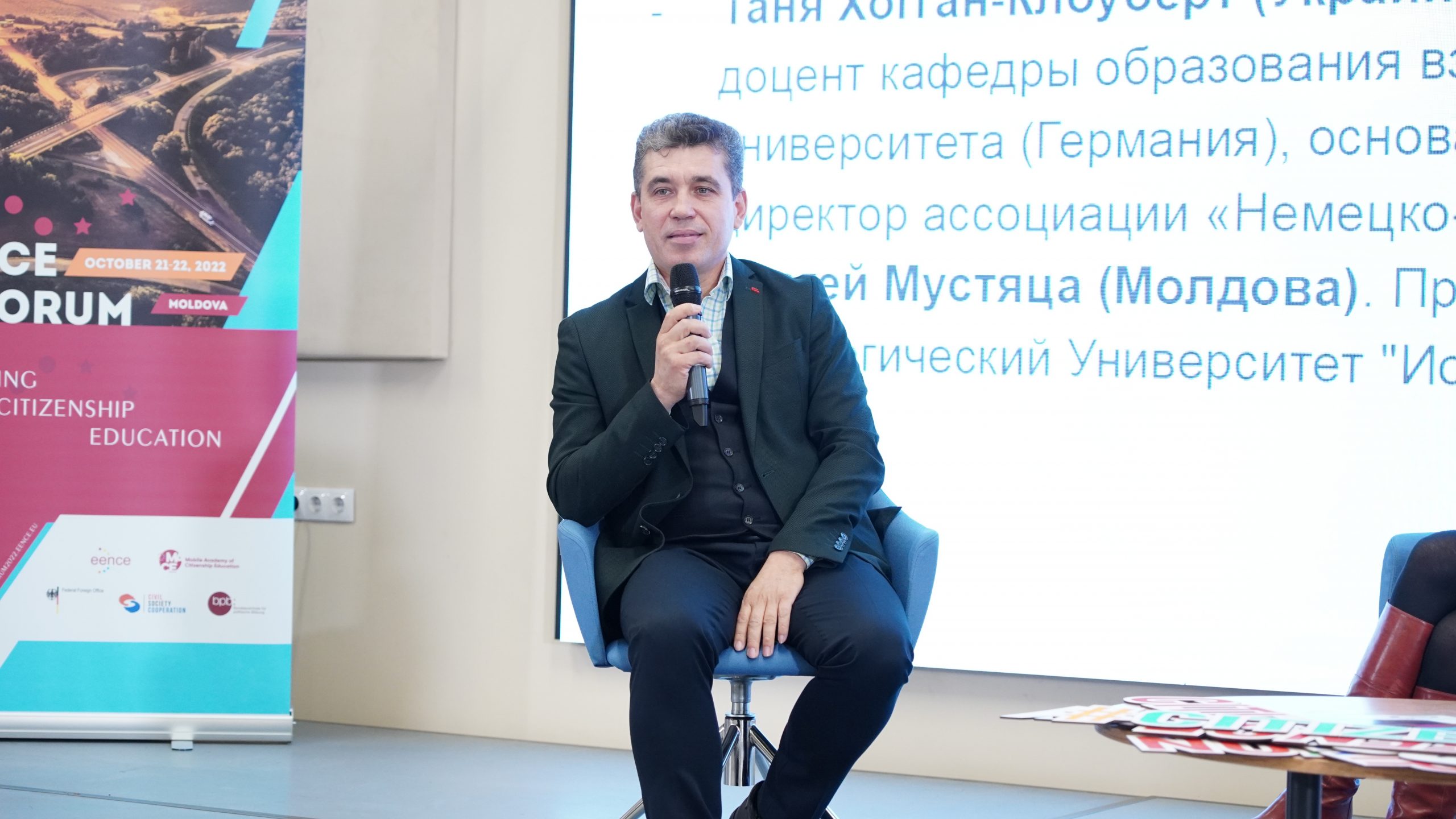
In his opinion, it is possible to improve the situation in the region only by investing in education and civic education, including. Citizenship education means gaining experience, fostering a culture of responsibility for one’s actions or inaction.
The participants of the talk show agreed that cooperation at the level of civil society between activists and educators from Azerbaijan, Armenia, Belarus, Georgia, Moldova and Ukraine should be continued.
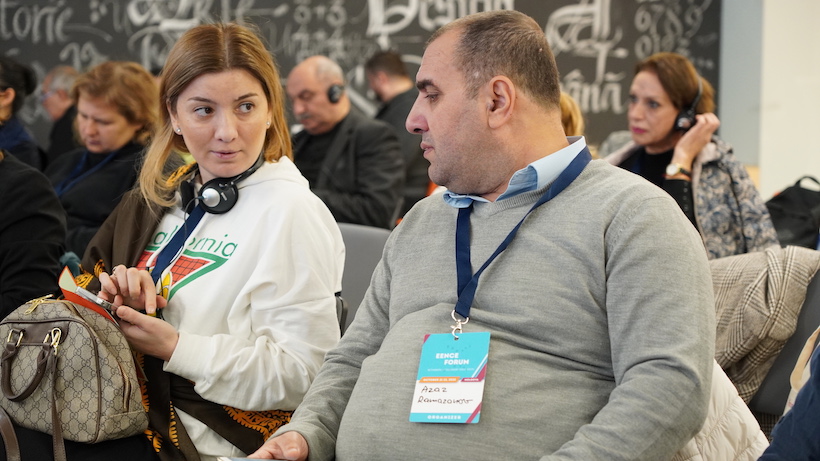
This is the only way we can strengthen and support each other in promoting human rights, civic participation and other democratic values.

